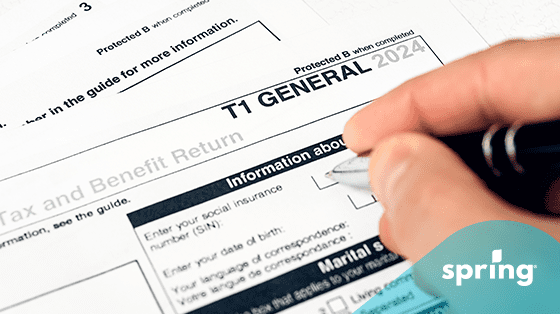Because of this, your credit scores with each bureau will be different. These differences are the reason it’s important to not only keep track of your Equifax credit score but your TransUnion credit score as well. Because of this, you don’t have just one credit score; essentially, you have two.
In Canada, there are two main credit bureaus: Equifax and TransUnion. This can make tracking your credit score difficult, though. Some banks and lenders report to both bureaus, and others just report to one. Because of this, your credit scores with each bureau will be different.
These differences are the reason it’s important to not only keep track of your Equifax credit score but your Transunion credit score as well. Because of this, you don’t have just one credit score; essentially, you have two.
Credit Bureaus and How They Work
You may have heard the term credit bureau before, but what exactly does it mean? How do they work? Credit bureaus, also called consumer credit reporting agencies, are companies that collect and compile information regarding your credit history. They get this information from:
- Banks
- Lenders
- Courthouses
- The Office of the Superintendent of Bankruptcy
The credit bureaus make no lending decisions; all they do is provide lenders with a credit pull( with the information showing the consumer’s creditworthiness. They also create a three-digit number known as your credit score that reflects this information.
Lenders then use this to determine approvals, credit limits, and how much interest they’ll charge. The information compiled together consists of:
- Your personal information
- Your credit information
- Credit accounts
- All inquiry information
- Information from collection agencies
- Any public records, including tax liens
- Payment history
- Missed payments
- Consumer proposals
This information is confidential, so lenders can’t just perform credit pulls. In some provinces, written consent is required. In others, you just need to be notified of the credit check. That said, they can run a smaller credit check, which is also known as a soft credit check. This type of credit check only provides bits and pieces of information, but not the whole picture of your credit history.
Hard Inquiries and Soft Inquiries
The type of credit check that’s done depends on the situation. When you or a lender runs a credit check and wants to see an accurate credit report and credit score, as well as an up-to-date credit history, that’s called a hard inquiry.
Hard credit inquiries should be made less than six times a year because, every time one is done, your credit score drops 5 – 15 points. Too many credit checks can also be seen as a red flag to lenders.
Soft credit checks, on the other hand, don’t affect your credit score at all. That said, they only briefly examine your credit report with an estimated credit score. These types of credit checks are done for credit pre-approvals or when you’re doing a free credit report check with many of the online options.
What Credit Bureaus Major Lenders Use
Whether you’re applying for a credit card, personal loans, or getting a mortgage, banks need to do a hard credit check to determine your approval. Every lender has a credit bureau; they prefer to run credit checks. Let’s take a look at what lenders prefer and which credit bureau.
TransUnion
If you’ve ever had a credit check done or checked your own credit, you’ve likely heard of TransUnion. They’re one of two major credit bureaus in Canada, and many different banks and credit unions report to them regarding your monthly payments and credit checks. Some of the major credit card companies and financial institutions mainly use this credit bureau.
- RBC (Royal Bank of Canada)
- Laurentian Bank
- Bridgewater Bank
- Vancity
- AMEX Bank of Canada
- CAA Mastercard
- Wal-Mart Mastercard
- Canadian Tire
TransUnion is commonly used for credit checks in Canada. However, you may notice that your TransUnion score is different from your Equifax score. This is because credit bureaus work by collecting your credit information from creditors’ reports that are submitted to them to calculate credit scores. Since this is different from what’s submitted to Equifax, it will be a different score.
Equifax
If your bank doesn’t do a credit check with TransUnion, they will use Equifax instead. Here are Canada’s major banks and credit card companies that use Equifax.
- TD Canada Trust (TD Bank)
- CIBC (Canadian Imperial Bank of Commerce)
- Desjardins
- Meridian Credit Union
- HSBC
- Borrowell
- Chase Canada
If you’re unsure about what your credit account information or credit score looks like with Equifax, you can do a free soft credit pull through their website. Not only can you look at your credit score online, but you can also see information about your credit habits as well as your overall financial health.
BBoth
As you can see, there are a few credit card companies and lenders that have a specific credit bureau. That said, other financial institutions pull credit reports from and report to both credit bureaus. Here they are:
- Capital One
- PC Financial
- MBNA
- BMO (Bank of Montreal)
- Scotiabank
- National Bank
- Tangerine
Credit Cards That Use TransUnion for Credit Checks
In Canada, many credit card issuers will use TransUnion to check if you have a good credit score before issuing you a credit card. This report will show your financial information, account statuses, current credit score and more. However, it can be difficult to know what your credit score is before you apply. You can do a soft credit check with TransUnion to see your own credit report. This can help you know when to apply.
While there may be many others that do a credit check with TransUnion, these ones do for sure:
- MBNA
- AMEX Bank of Canada
- CAA Mastercard
- Wal-Mart Mastercard
- PC Financial
- Capital One
Credit Cards That Use Equifax for Credit Checks
Since not all creditors and credit card issuers use TransUnion, it’s also important to keep up on your credit score. At the same time, many users who use Transunion may choose to switch to Equifax or use both (AMEX Bank of Canada, MBNA, PC Financial and Capital One). Others choose not to use Equifax at all. Some also use it when they need more information than TransUnion can provide.
The Most Commonly Used Credit Bureau in Canada
Based on the different banks and lenders we looked at above, TransUnion seems to be the most popular credit bureau from which a lender pulls your credit score. That said, many lenders still use Equifax.
You may not know this, but there’s a third credit bureau as well. It’s called Dun & Bradstreet and is used for business credit reporting. For the purpose of your personal credit report, you only have to worry about TransUnion and Equifax.
Credit Bureaus Checked in Different Provinces
Both TransUnion and Equifax are Canada-wide credit bureaus. The bureau that the lenders choose to use is based on their preference, not on where you live. No matter where you live in Canada, lenders have access to both.
Checking your Credit Reports
Your credit score is an important factor in not only obtaining new credit lines but also things like:
- Renting a home
- Getting a job
- Getting a cell phone
- Opening a bank account
- Opening an electric or gas account
Before you start applying to lenders, it’s important to have a good idea of what your credit score is. As we mentioned above, hard credit checks can have a negative impact on your credit score, so you want to have as few as possible.
When you’re checking your credit score yourself, there are a few different sites you can use. Some of these will focus on Equifax or TransUnion. It’s a good idea to keep track of both.
Borrowell
Borrowell is a free service that you can sign up for to keep track of your Equifax credit report. You’ll also receive monthly updates, free tips to increase your credit score and specialized credit offers tailored to your financial situation.
Credit Karma
Credit Karma is similar to Borrowell, except for the fact that it keeps track of your TransUnion credit report. You’ll be kept up to date on your credit score as well as get tips on ways you can improve your score. You can also get specialized offers.
Transunion
With TransUnion Canada, you can get a free copy of your monthly credit report right in your inbox. All you need to do is sign up online and answer some questions to verify it’s you. This is also referred to as a TransUnion consumer disclosure. You can also get it via mail. Either way, you need to provide a copy of both sides of the government-issued photo ID.
Equifax
With Equifax Canada, you can create an account online and have immediate access to your credit score. If you don’t want to obtain this through Equifax online, you can also request it via mail. Just like with TransUnion, you can purchase credit monitoring through Equifax. This not only provides you with updated credit information, but it also keeps an eye out for identity theft and notifies you immediately.
Clearscore
ClearScore is another online company that offers free access to your TransUnion credit score. They also have access to exclusive credit offers and interest rates you can’t find anywhere else. These offers are based on your credit score. You don’t even have to have a good credit score to start receiving offers.
Overview
While each consumer credit reporting agency will have a different credit score for you, each is equally important. This is because different lenders will check different reports, or some will even check both.
If you’re getting a new credit line and aren’t sure which credit bureau they report to, you can ask, and they’ll let you know. Knowing which credit bureau holds each credit line makes it easier to keep track of your credit score.
That said, no matter where you live in Canada, you only have to worry about these two credit bureaus for your credit score. Even if you aren’t looking to access credit, your credit score is an important part of everyday life. It’s used for more than just financing. Private companies can also check your credit, which can affect things like renting and getting a job.









